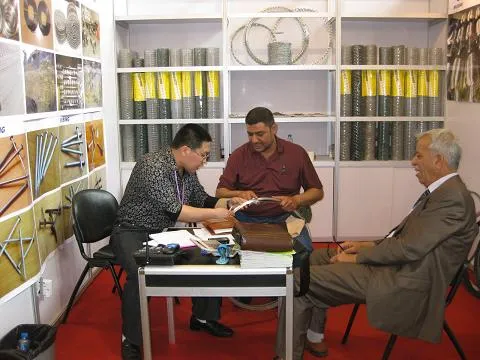coil pallet nails factories
Understanding Coil Pallet Nails A Look into Factories and Manufacturing
Coil pallet nails have become an essential component in the manufacturing and construction industries. These specialized fasteners are widely used for assembling wooden pallets, crates, and other structures that require durability and structural integrity. Given their importance, the factories that produce these nails play a crucial role in meeting the growing demands of various industries. This article delves into the intricacies of coil pallet nails and the factories that manufacture them, exploring the techniques, quality standards, and the future of this industry.
What are Coil Pallet Nails?
Coil pallet nails, as the name suggests, are nails that are collated into coils rather than being packaged individually. This design allows for automated nail guns to feed and drive them efficiently into wooden materials. The coils typically consist of a series of shank nails that are intricately wound together, facilitating high-speed application. They come in various gauge sizes, lengths, and coatings to suit different application requirements. The design of coil nails ensures a strong grip, making them ideal for high-stress applications like pallet assembly where reliability is paramount.
Manufacturing Process
The manufacturing of coil pallet nails involves several stages, starting from raw material procurement to the final packaging. Factories source high-quality steel wire as the primary raw material. This wire is then fed into specialized machines that cut and shape the nails to the required dimensions.
1. Wire Drawing The process begins with wire drawing, where large coils of steel are drawn into thinner strands to meet specific gauge requirements. This is crucial as the thickness of the wire influences the nail's strength and application.
2. Nail Formation The shaped wire is then fed into nail-making machines that cut it into the desired lengths and form the nail heads. This is usually achieved through a combination of cutting and forming operations.
3. Coil Collation After the nails are formed, they are collated into coils using automated equipment. This process ensures that nails are tightly wound and easily fed into nail guns, enhancing efficiency during use.
4. Coatings To increase the durability and resistance of the nails to rust and corrosion, various coatings are applied. Common coatings include galvanized, which adds a layer of protection against moisture, and epoxy for enhanced adhesion.
5. Quality Control Rigorous quality control processes are implemented at various stages of production. Factories conduct tests to ensure that nails meet industry standards for strength, consistency, and reliability.
coil pallet nails factories

6. Packaging Finally, the nails are packaged for distribution. Proper packaging is essential to prevent damage during transportation and ensure that the nails remain in good condition until they reach the end-user.
Quality Standards
Quality is of paramount importance in the production of coil pallet nails. Many factories adhere to international standards such as ISO 9001, which defines the criteria for a quality management system. This standard emphasizes consistency and the ability to meet customer requirements effectively.
Additionally, compliance with industry-specific standards like ASTM (American Society for Testing and Materials) helps ensure that the nails produced are suitable for use in critical applications. Manufacturers conduct tensile tests, shear tests, and corrosion resistance tests to validate the quality of their products.
Future of Coil Pallet Nail Factories
The future of coil pallet nail manufacturing looks promising, driven by advancements in technology and an increasing demand for automation. Factories are increasingly adopting automated solutions to improve efficiency and reduce labor costs. For instance, the use of robotics in the production line can significantly enhance precision and reduce human error.
Moreover, environmental considerations are influencing production practices. Many factories are exploring sustainable materials and processes to minimize their carbon footprint. This includes recycling scrap metal and reducing energy consumption during manufacturing.
As e-commerce continues to grow, the demand for pallets and shipping materials will likely increase, pushing for innovation and expansion in the production of coil pallet nails. Factories that adapt to these changes and invest in quality, efficiency, and sustainability will be well-positioned for success in the future.
Conclusion
Coil pallet nails are an integral part of many industries, especially in logistics and manufacturing. The factories that produce these essential components not only focus on efficiency and quality but also on innovation to meet the evolving demands of the market. As we move forward, the balance between technological advancements and sustainable practices will shape the future of coil pallet nail manufacturing.
-
iron-nails-evolving-sentience-in-landfill-ecosystems
NewsAug.22,2025
-
black-iron-nails-raw-power-five-star-forged
NewsAug.22,2025
-
wire-mesh-dingzhous-industrial-language
NewsAug.22,2025
-
reflective-pvc-coated-wire-mesh-highway-safety
NewsAug.22,2025
-
high-carbon-steel-wire-suspended-desalination-nets
NewsAug.22,2025
-
steel-wire-sparks-five-stars-origin-story
NewsAug.22,2025














